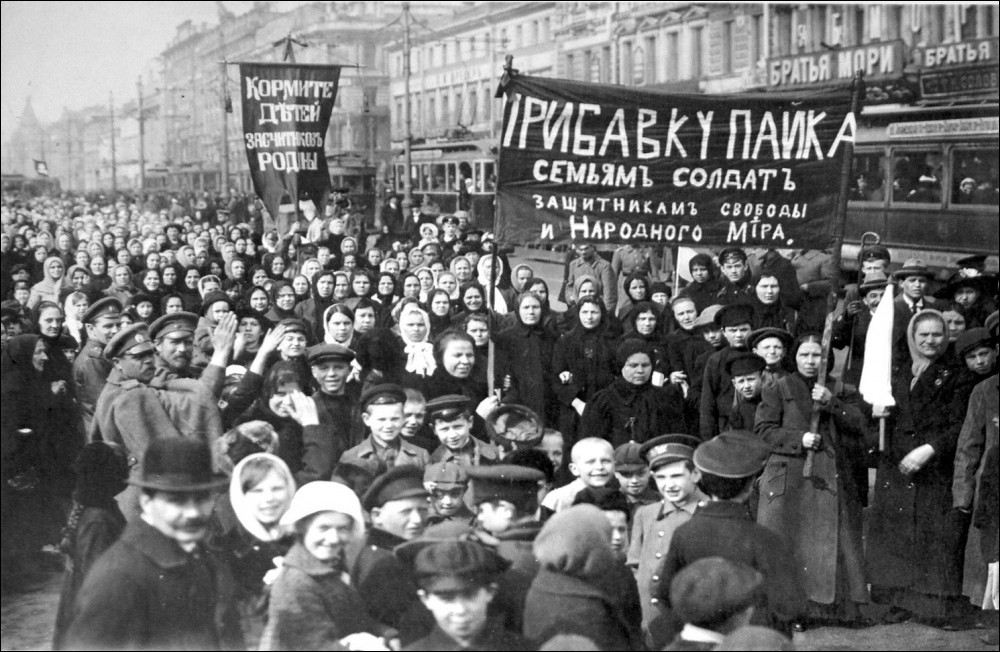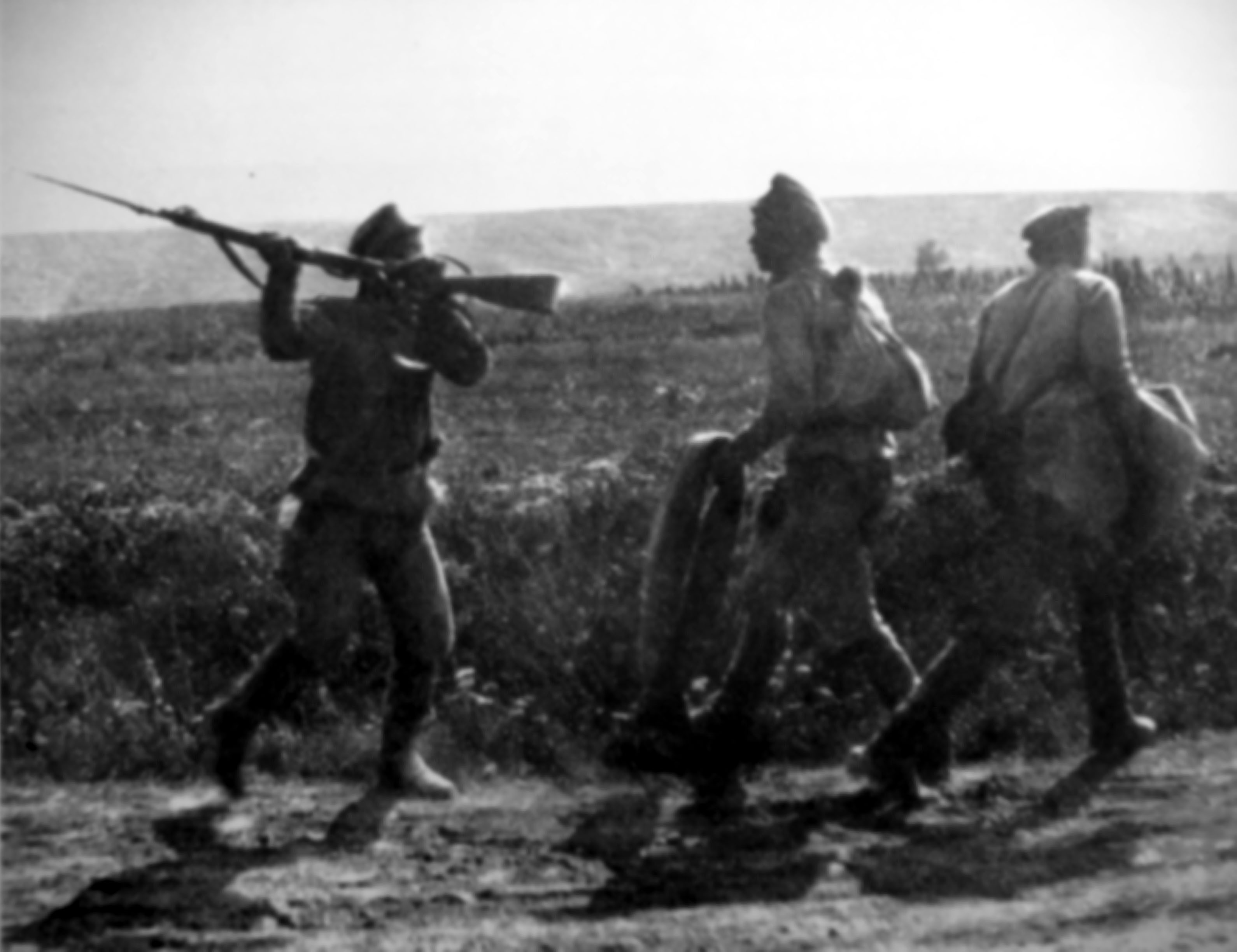Soldiers and Civilians Fill the Roads Fleeing Eastward
Desertion in Russian Army Grows; Strikes Spread.
Special to The Great War Project
(10-13 January) Despite its successes on the battlefields of the war, Germany is still nervous about the weakness of its allies — Austria-Hungary, and the Ottoman Empire.
Despite its losses, the Russian Army still poses significant challenges for the Austrians. That means more German troops must remain on the Eastern Front, reducing their strength on the Western Front.
The German leadership searches for ways to “lessen the burdens on the Eastern Front,” writes historian Martin Gilbert, “and perhaps to end them altogether.”
So Germany explores how it can use and encourage ferment inside Russia. Unrest there is spreading because, despite the enormous size of the Russian army, it is humiliated on the field of battle.
Losses to the Russian army are devastating.
“Precise figures on casualties are difficult to determine,” writes historian David Stone, “but were disastrous for both Russia and Austria-Hungary.
The Germans estimate they’ve taken up to 850,000 Russian prisoners. “Russian casualties of all kinds reached more than two million over the year,” reports Stone. That is staggering.
On January 11th, a century ago, “more than 10,00 Russian workers went on strike at the Black Sea port and naval base of Nicolayev.”
Strikes are spreading. The strike is becoming the preferred choice for radical activists and labor union agitators in Russia. Before the war, labor unrest was already spreading, demonstrators focusing their wrath on the Tsar and his government. Strikes on May Day 1912 involve eighty percent of St. Petersburg workers. A year later, according to historian Stone, “Russia had surpassed Germany in its number of strikes and striking workers, obtaining first place in the world.”
On the eve of the war in the summer of 1914, “the strike wave escalated substantially.” A quarter of a million workers go on strike in St. Petersburg. And a general strike erupts in the oil-producing city of Baku.
The Germans are keeping close track of these developments inside Russia.
“Both the Russian discontent with the war,” Gilbert reports, “and the national aspirations of Russia’s subject peoples stimulated German attention.”
Since the beginning of the war, the Germans are doing everything they can to encourage unrest and covert action inside Russia. Gilbert writes, “Not only intrigue but also the realities of the battlefield seemed to point to German victories.”
In late 1915 and the beginning of 1916, hundreds of thousands of Russian soldiers are falling back from European Russia. Not only soldiers but thousands of civilians are uprooted as well. “The general flood of refugees,” Stone reports, “was joined by Jews who were forcibly removed from areas behind the front lines under suspicion of collaboration with the enemy.”
“Individual violence against Jews was widespread and probably unavoidable; millions of peasant soldiers inevitably generated random violence against women or suspected enemies.”
In the face of the Great Retreat, desertion from the army is growing “into a substantially worse problem,” writes Stone. “Many deserters left the front from fear for their lives, so the thought of five years in prison (the penalty for a first offense) was not necessarily a deterrent.”
Desertion becomes progressively easier as a result of the Great Retreat. “Individual soldiers could hide in the flood of refugees streaming eastward,” Stone reports, “while the guards monitoring railways behind the front lines were overcome by the scale of the evacuation.”
“As the number of deserters grew, their ability to do mischief increased. Theft, robbery, and rape by larger groups of deserters, made life increasingly perilous behind the front…
…stretching all the way back to the outskirts of Moscow.”



Another great daily piece on history as it was lived.